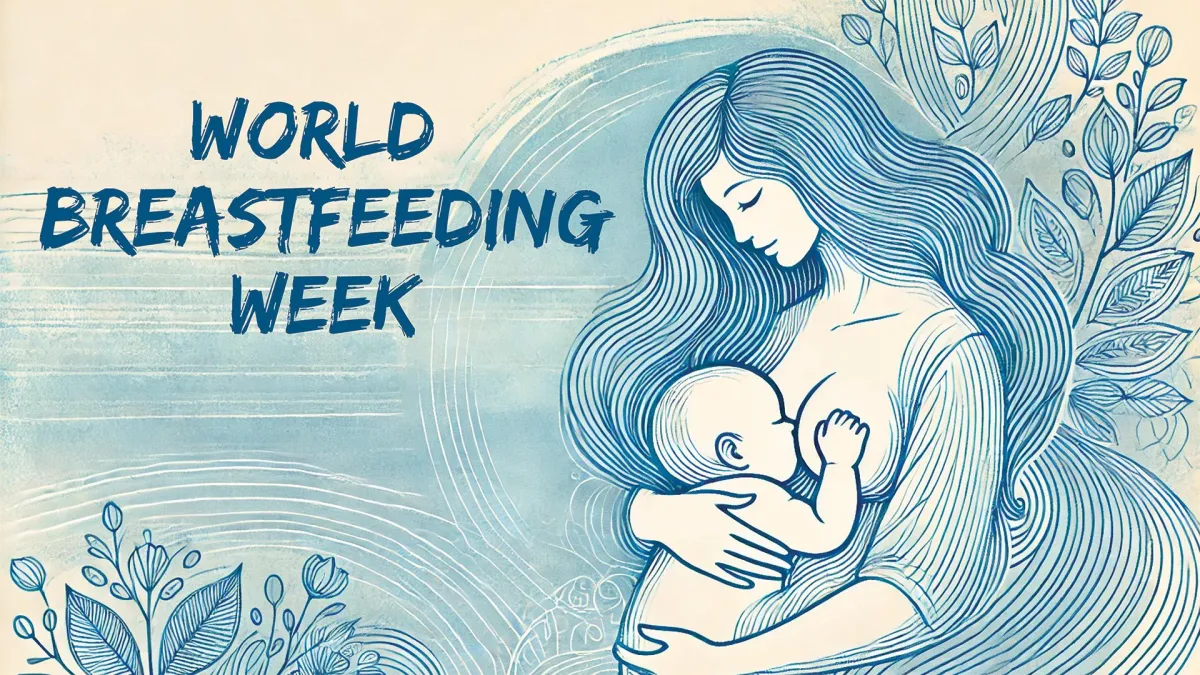Blogs

A Journey of Nurturing and Bonding
Celebrating International Breastfeeding Week
International Breastfeeding Week, celebrated annually from August 1 to August 7, is a global initiative to raise awareness about the benefits of breastfeeding and to support and encourage mothers worldwide. This week highlights the critical role of breastfeeding in infant nutrition, maternal health, and the well-being of communities. In this blog post, we will delve into the importance of breastfeeding, the challenges faced by mothers, and the resources available to support them.
The Benefits of Breastfeeding
Breastfeeding offers numerous benefits for both infants and mothers. For infants, breast milk is the most complete form of nutrition. It contains the perfect balance of nutrients, antibodies, and hormones that are essential for a baby’s development. Breastfed babies are less likely to suffer from illnesses such as ear infections, respiratory infections, and gastrointestinal issues. Long-term benefits include a lower risk of developing chronic conditions such as obesity, diabetes, and certain types of cancer.
For mothers, breastfeeding helps in postpartum recovery by promoting uterine contractions, which reduce postpartum bleeding. It also lowers the risk of breast and ovarian cancers, type 2 diabetes, and postpartum depression. Furthermore, breastfeeding fosters a unique bond between mother and child, contributing to the emotional well-being of both.
Overcoming Breastfeeding Challenges
While breastfeeding is a natural process, it is not always easy. Many mothers encounter various challenges that can make breastfeeding difficult. Common issues include latching problems, sore nipples, low milk supply, and mastitis. These challenges can lead to frustration and discouragement for new mothers.
However, with the right support and resources, many of these challenges can be overcome. Lactation consultants play a crucial role in providing personalised guidance and practical solutions. They can assist with proper latching techniques, managing pain, and addressing concerns about milk supply. Support groups, whether in-person or online, also offer valuable encouragement and advice from other breastfeeding mothers who have faced similar challenges.

Breastfeeding and Work: Striking a Balance
One significant hurdle for many mothers is balancing breastfeeding with returning to work. The demands of a job can make it difficult to maintain a consistent breastfeeding or pumping schedule. However, with proper planning and support from employers, it is possible to continue breastfeeding while working.
Employers can support breastfeeding mothers by providing private, comfortable spaces for pumping, offering flexible break times, and ensuring access to refrigeration for storing breast milk. Mothers can benefit from discussing their needs with their employers before returning to work and creating a pumping schedule that aligns with their work responsibilities. Understanding their rights under workplace lactation policies is also crucial.
Community Breastfeeding Support
Community support is vital for breastfeeding success. Public health campaigns and community programs can create an environment where breastfeeding is encouraged and normalized. Hospitals and healthcare providers can contribute by implementing breastfeeding-friendly practices, such as the Baby-Friendly Hospital Initiative, which promotes breastfeeding as the norm for infant feeding.
Additionally, family and friends play a significant role in supporting breastfeeding mothers. Positive reinforcement, practical help, and understanding from loved ones can boost a mother’s confidence and make her breastfeeding journey more manageable. Communities can further support by organizing breastfeeding support groups, providing access to lactation consultants, and promoting public awareness about the importance of breastfeeding.
Breastfeeding Resources and Advocacy
A wealth of resources is available to support breastfeeding mothers. Organisations such as the World Health Organisation (WHO) and the United Nations International Children's Emergency Fund (UNICEF) provide guidelines and recommendations for optimal breastfeeding practices. They advocate for exclusive breastfeeding for the first six months of life, followed by continued breastfeeding along with appropriate complementary foods up to two years of age or beyond.
Local breastfeeding organisations, such as The Australian Breastfeeding Association (ABA). The ABA provides support, education, and resources for breastfeeding mothers and their families across Australia. They offer a range of services including a national helpline, local support groups, online forums, and breastfeeding classes. These organisations also play a critical role in advocacy, working to influence policies that protect and promote breastfeeding rights.
Advocacy efforts are essential to creating a breastfeeding-friendly culture. This includes protecting the rights of breastfeeding mothers, promoting public awareness campaigns, and supporting policies that facilitate breastfeeding in public and at the workplace. Advocates work tirelessly to ensure that breastfeeding is recognised and supported as a fundamental aspect of public health.
Conclusion
International Breastfeeding Week is a time to celebrate the incredible journey of breastfeeding and to acknowledge the efforts of mothers, families, healthcare providers, and communities in supporting this vital practice. By raising awareness, addressing challenges, and providing robust support systems, we can ensure that more mothers are empowered to breastfeed successfully. The benefits of breastfeeding extend far beyond individual families, contributing to the health and well-being of entire communities. Let us continue to promote and support breastfeeding, ensuring a healthier future for all.
4o

